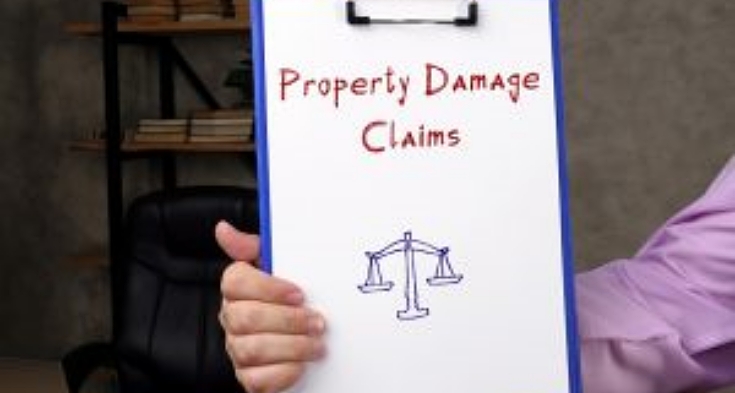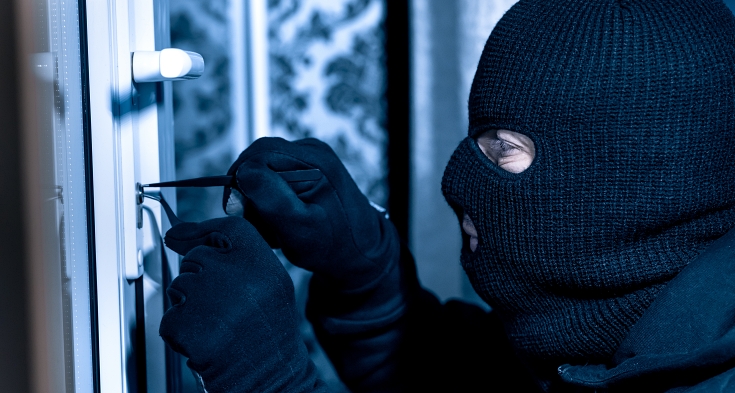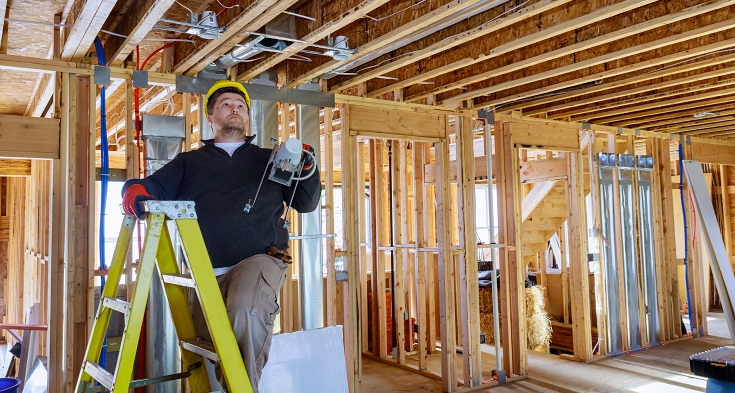
A Clinical Social Worker facing an Administrative Complaint from the Florida Department of Health (DOH) encounters a serious professional challenge. In particular, allegations based on Florida Statutes section 491.009(1)(w) related to violations of sections 456.47(4)(i)(3) and 456.47(4)(b)(2) carry significant legal and career implications. This article provides a detailed breakdown of the statutes, the nature of such complaints, the investigation and administrative hearing process, potential defenses, and how Elevate Legal Services, PLLC, can assist you in safeguarding your professional license and reputation in Boca Raton, Florida.
Elevate Legal Services, PLLC, offers experienced legal representation to licensed clinicians facing Administrative Complaints. If you are under investigation by the Florida Department of Health or have received a Notice of Investigation or Professional Liability, contact Elevate right away at 561-770-3335 or [email protected]. Our Boca Raton team will review your situation and develop a strategic plan to defend your rights and preserve your license.
Why This Matters
Your license is at stake. A DOH complaint may lead to penalties including probation, suspension, or permanent license revocation. DOH complaints are public records, which can affect your professional reputation, employment through credentialing, and insurance coverage. Regulatory proceedings carry potential fines and reporting obligations, which can have long-lasting consequences beyond the immediate case.
Overview of Florida Law and Statutory Framework
A. What is Florida Statute 491.009(1)(w)?
Florida Statute 491.009(1)(w) empowers the Florida Board of Clinical Social Work, Marriage & Family Therapy, and Mental Health Counseling to discipline licensed professionals for violating rules related to unprofessional conduct or administrative requirements. Specifically, this section permits action when a licensee violates requirements set in Chapter 456, including duties, keeping, supervision, and patient care standards.

It serves as a catch-all provision, allowing the Board to act against any behavior the DOH finds violates Chapter 456. When used in combination with specific Chapter 456 violations, it gives the DOH grounds to file a formal Administrative Complaint.
B. Overview of Florida Statute 456.47
Chapter 456, Section 456.47 sets out rules relating to unprofessional conduct for regulated health professionals. Two key provisions commonly alleged in clinical social worker cases include:
1. Section 456.47(4)(i)(3)
This provision prohibits providing services without appropriate supervision, or services outside the scope of practice. It is applicable when a licensed social worker practices independently in violation of supervision or delegation rules that apply to clinical social work interns, associates, or unlicensed personnel.
2. Section 456.47(4)(b)(2)
This section prohibits misrepresentation of credentials, including failure to hold or maintain the required license or falsely implying licensure or certification. This applies if a licensee represents themselves as supervised when they are not, or continues providing services after license expiration or suspension without proper notification.
Common Scenarios Leading to Complaints
Understanding typical complaint scenarios helps clarify what constitutes a violation and how to defend against these allegations.
- Practicing Without Proper Supervision
A newly licensed social worker may assume a client only requires oversight for one year, then shifts abruptly to unsupervised practice before fulfilling supervision-hours requirements. If errors occur, the DOH may allege unlicensed or unsupervised practice per section 456.47(4)(i)(3).
- Misrepresenting Credentials
If a clinical social worker uses a protected title, such as “Clinical Supervisor,” without holding required credentials or allows someone else to rely on that title, it could be deemed a violation of section 456.47(4)(b)(2). Misrepresentation can also arise from advertising or record‑keeping that implies credentialing the licensee did not possess.
- Supervision of Interns or Associates
A clinical social worker who supervises interns without meeting the required qualifications—or fails to document supervision—may violate section 456.47(4)(i)(3) based on those supervisory duties.
DOH Complaint and Investigation Process
- Filing the Complaint
Complaints can come from clients, employers, or mandated reporters. The DOH may initiate investigation independently if they receive credible evidence, such as licensing audit results.
- Notice and Investigation
The licensee receives a “Notice of Investigation,” which outlines the alleged violations and requests documents and a response. The response period is typically 20 days. Failure to respond or submission of an inadequate defense may lead to default action.
- Investigation and Case Report
DOH investigators review records, interview witnesses, and collect evidence. A case report is prepared presenting a case for probable cause.
- Probable Cause Panel
The probable cause panel may dismiss the complaint, recommend informal resolution (e.g. fine, reprimand), or refer the case for formal Administrative Complaint. If referred, the DOH issues a formal Administrative Complaint, and the case proceeds to an administrative hearing before an Administrative Law Judge (ALJ).
Administrative Hearing Process
- Pre-Hearing Preparation
Upon receipt of a formal complaint, licensees must file an answer (typically within 20 days). Discovery follows, including interrogatories, requests for production, and depositions.
- Administrative Hearing
The ALJ hears testimony from DOH witnesses, experts, and the licensee. The licensee’s attorney can cross-examine and submit expert testimony, such as testimony on standard of care, supervision practices, or licensure requirements.
- Post-Hearing Recommended Order
The ALJ issues a recommended order summarizing findings and recommended discipline. The Board reviews the recommendation and issues a Final Order, which may include sanctions, probation terms, or license restrictions.
- Appeals Process
The Final Order is appealable to the Circuit Court, typically within 30 days.
Possible Sanctions and Consequences
- Reprimand
A public reprimand may involve documentation in the license record but might allow continued practice under probation.
- Discipline with Probation
Probation may include continuing education, supervision, audits, practice restrictions, or psychological evaluation.
- License Suspension
Short‑term license suspension (e.g. 30 days) may apply in infractions involving patient harm or record‑keeping failures.
- License Revocation
Revocation permanently ends licensure and is uncommon unless there is severe misconduct or prior discipline.
- Administrative Fines
The DOH may assess fines of up to $5,000 per violation depending on severity.
Constructing Your Defense Strategy
How you respond determines the strength of your position. At Elevate Legal Services, PLLC, we follow a multi-step approach:
- Detailed Statutory and Regulatory Analysis
We assess whether supervision was required and clearly define your role, licensure status, and duties. We also evaluate whether any institutional policies imposed stricter standards than Florida law—those may mitigate DOH allegations or justify informal resolution.
- Documentation Review and Preservation
We carefully review supervision logs, progress notes, and treatment plans to confirm oversight and compliance. We interview supervisors, coworkers, and clients to build supportive testimony or refute allegations.
- Expert Opinion and Witness Testimony
We identify qualified clinical supervisors, licensed social workers, or healthcare administrators to testify about standard practice, supervisory roles, and record‑keeping norms. We use expert affidavits in pre‑hearing submissions to persuade the panel of compliance.
- Procedural Defense
We evaluate timeliness of the complaint under statutes of limitations. We challenge lack of jurisdiction, improper notification, or insufficient evidence supporting probable cause.
- Negotiation of Informal Resolution
If case facts suggest minor errors or ambiguity, we petition DOH for informal disposition—e.g. retraining, consultation, and dismissal upon completion. We strategize to avoid formal disciplinary action and public records.
- Administrative Hearing Representation
We represent clients at the hearing, cross-examine witnesses, and present affirmative defenses showing that no violation occurred or that any violations were minor and remediated. We present closing arguments focused on protecting patient health outcomes and ensuring public safety.
Why Choose Elevate Legal Services, PLLC?
At Elevate Legal Services, PLLC, we represent clinical social workers in Boca Raton and across Florida facing DOH complaints under sections 491.009(1)(w), 456.47(4)(i)(3), and 456.47(4)(b)(2). Our clients benefit from decades of administrative law experience handling professional licensure defense. We possess in-depth knowledge of Florida’s board rules and procedural strategies to challenge DOH allegations.

Our established network of clinical experts provides high-quality testimony and witness support. We offer full lifecycle representation from initial response through hearing, remediation, and appeal stages. Our client-centered approach protects not only your license but your reputation, career, and financial stability in healthcare.
Let us help you maintain your license and livelihood. If you are facing an investigation or complaint, act swiftly: contact us today at 561‑770‑3335 or via [email protected] for a confidential review.
Final Thoughts
Facing an Administrative Complaint from the Florida Department of Health under Florida Statutes 491.009(1)(w), 456.47(4)(i)(3), or 456.47(4)(b)(2) can be overwhelming, but you do not have to face this challenge alone. With a knowledgeable legal team at Elevate Legal Services, PLLC, you can prepare a strong defense grounded in statutory interpretation and factual documentary support. You can engage expert testimony and procedural skill to challenge allegations. You can navigate administrative or informal resolutions that protect your professional standing. You can advocate on your behalf to secure a favorable outcome through a hearing or appeal.
If a DOH complaint threatens your clinical social work license, contact Elevate today at 561-770-3335 or [email protected]for trusted guidance and effective representation.
Remember, your license is more than a credential—it is your voice for client advocacy and social impact. With Elevate’s strategic defense, you can weather this challenge and cultivate a practice founded on integrity, professionalism, and ongoing growth.





